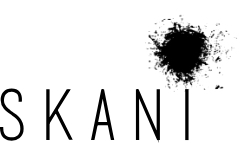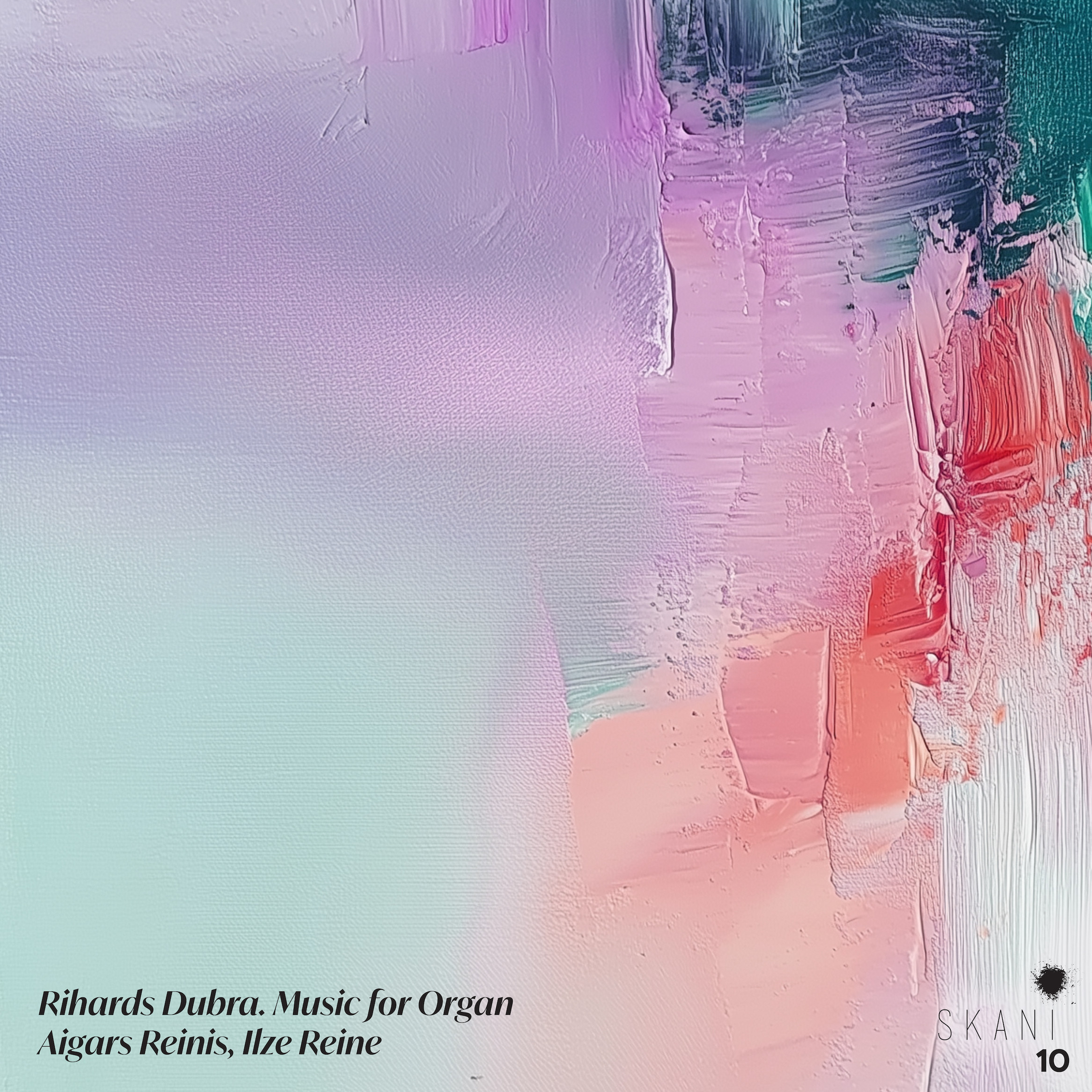Translation from German to English:
"Fractures in the World of Wellbeing"
Rihards Dubra: Music for Organ. Aigars Reinis, Ilze Reine at the Walcker Organ of Riga Cathedral. LMIC/SKANI 168 (2 CDs).
For new, contemporary organ music, it is often difficult to appear on audio or video recordings and to find an appreciative audience. Therefore, this CD production deserves respect and high praise, as it fills a gap with the music of Latvian composer Rihards Dubra, which is hardly known in German-speaking countries. Organist duo Ilze Reine and Aigars Reinis from Riga took Dubra’s 60th birthday as an occasion to unite all of his organ works, composed since 1995, on a double CD.
Those craving avant-garde may not get their fix from this music—or perhaps they will, as Dubra’s creations, which are mostly situated in the tonal, harmonically comprehensible realm, are from time to time struck, pierced, and shocked by sharp, cutting clusters that flash in unexpectedly. This appears to be his trademark and contributes to the sophistication of his music, which at times comes across as neo-Baroque, enchantingly French-Romantic, or meditative. These clusters have a destructive quality, as they unexpectedly break into an intact tonal, harmonic world of comfort, not only surprising the listener but jolting them back into the harsh reality of our torn world.
Dubra, drawn to the magic of the organ, loves large-scale pieces that range between eight and seventeen minutes. The technical and musical demands are unmistakable. He reveals himself as a master of the fugue, whose themes and developments sometimes sound not only like Bach but also like Max Reger, while in the freer works, late Widor peers out from every corner. Allusions to Vierne and Alain also play their part in this organ-symphonic escapade.
The composer often reflects on Baroque forms. Equally convincing is his tonal language in the sacred-themed titles such as The Longing of Eternal Hills or The Touch of the Gaze of Our Lady. The metaphor of the rose particularly fascinates him, as in The Divine Rose or The Light of the Mystic Rose. Both pieces captivate with a strong emotional sphere.
Thus, this double album is very tonal in nature, beginning with a massive A minor chord and ending in a radiant D major—which, in the final second, is shattered by a relentless cluster combined with a gong. Various persistently sounding, relentlessly admonishing tubular bells lend the final Petite symphonie pour orgue à quatre mains a strong expression of faith. Dubra makes perfect use of the full color palette of the Riga Cathedral organ—from barely perceptible ppp to thundering fff. This legendary instrument, wisely chosen by the two Riga church musicians, naturally elevates the recording and is almost predestined for Dubra’s intentions.
What remains after listening to this recording? Certainly the fabulous, brilliant playing of both soloists, who do full justice to the pieces and identify with them completely. No less memorable is Dubra’s music, which seems almost expressionist and resounds from the Baltics in a startling and provocative manner. The succinct booklet includes biographies of the soloists and composer in English and Lithuanian.
Interpretation: ★★★★★
Organ: ★★★★★
Recording: ★★★★★
Booklet: ★★★★☆
"Musik & Kirche": Felix Friedrich, 05/2025
________________
Translation from German to English:
"I don’t create music, I merely write down what has been sent to me."
This sentence offers insight into the creative power that Latvian composer Rihards Dubra draws from his deep faith. His Catholic background is also reflected in his largely sacred body of work, in which the organ plays a central role. Minimalism, Gregorian chant, and Renaissance music have had a decisive influence on his compositional development—placing Dubra in a lineage alongside Arvo Pärt and his compatriot Pēteris Vasks.
However, the broadly romantic-impressionistic guise of his music is shaped by a compositional process that Dubra himself describes as a meditative style, giving his music its uniquely personal character.
The double CD released last year for Dubra’s 60th birthday, containing all of his (to date) composed solo works for organ, opens up the vast panorama of Dubra’s musical world—and that’s meant quite literally. Especially his works from the earlier creative period in the 1990s paint wide musical landscapes, with titles drawn from Catholic devotion that set the tone—for example, Mūžīgo pakalnu ilgošanās ("The Longing of Eternal Hills") from the Litany of the Sacred Heart, or Piedodošās gaismas litānija ("Litany of the Forgiving Light").
His more recent works, with titles like Toccata or Fantāzija un fūga (Fantasy and Fugue), reference traditional organ music genres—but even here, Dubra remains true to his sonic language: a powerful play with harmonic colors, in a persistently shimmering ostinato full of drama and lyricism. The occasional eruptive bursts in the form of brief sound clusters do not disrupt the predominantly tonal soundscape but rather express the emotional intensity of Dubra’s music.
Ilze Reine and Aigars Reinis share the musical program of this double CD. In the final Petite symphonie pour orgue à quatre mains, in which Dubra deliberately references the French organ music tradition, both performers play simultaneously, also operating gong and bell. This musical duo brings Dubra’s music to life with great sonic sensitivity and virtuosic naturalness. The large Walcker organ (1883/84) in Riga Cathedral, with its 124 registers—Reinis’ primary instrument—provides the ideal opulent “sound construction kit” for this purpose.
This is an all-around successful production by the Latvian label Skani, which joins a series of other noteworthy Latvian organ music CDs (including works by Alfrēds Kalniņš and Marģeris Zariņš).
That we’ll hear even more from Dubra in the coming years is suggested by a quote from the booklet:
"Domāju, ka tas turpināsies ..." – "I believe this will continue ..."
And that is something we can look forward to.
"Musica Sacra": Gabriel Isenberg, 05/2025
______________
Translation from German to English:

